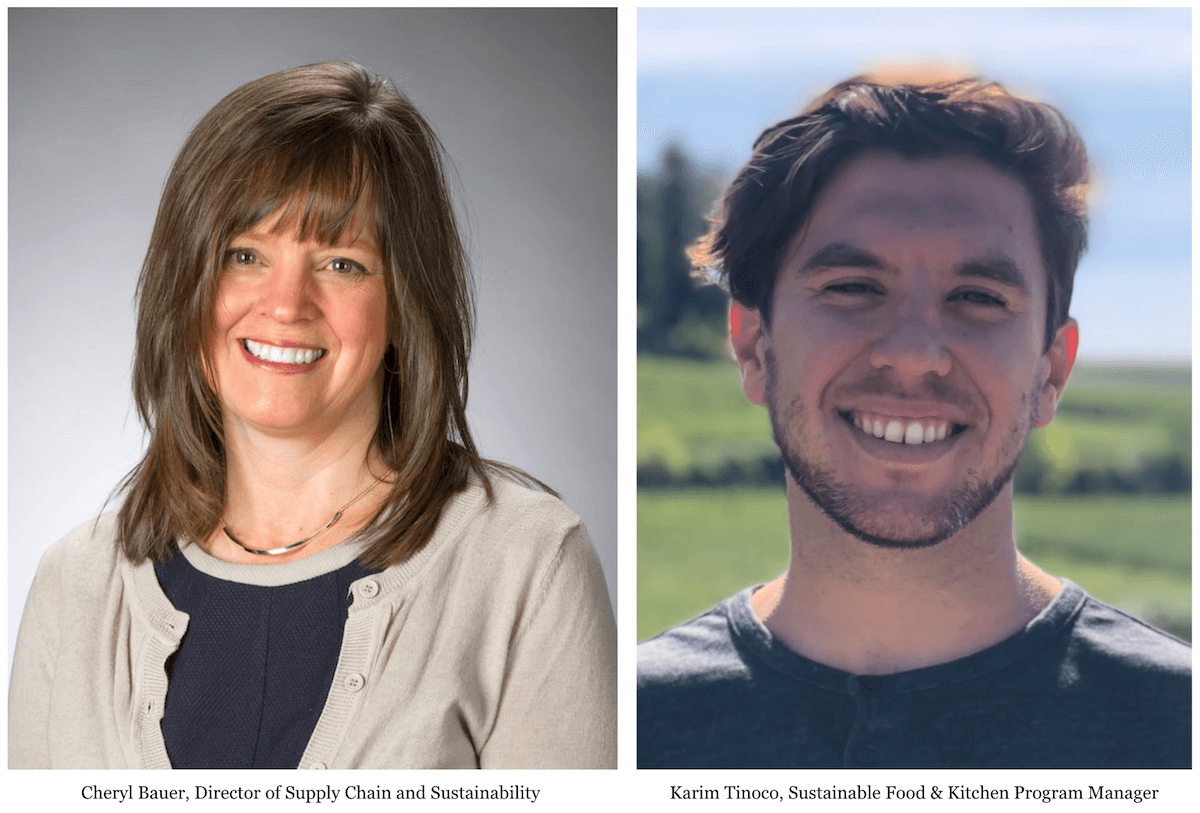
In the face of climate change, we are inundated with reminders about greenhouse gases (GHGs) associated with driving, flying, and the energy demands of powering our modern world. But have you stopped to think about how food affects our climate? In the realm of sustainability, managing and mitigating the impacts of food is incredibly complex. From production to consumption, factors like agricultural practices, water requirements, transportation, preparation, and eating habits all determine the ecological, climate, and social effects of our food. And the EPA statistics are staggering: Nearly 40% of all food waste occurs at the consumer level, and they estimate that more food reaches landfills than any other single material in our everyday trash, constituting 24% of municipal solid waste. Moreover, 8% of greenhouse gases are caused by food waste, 6% of all GHGs are emitted from transporting food, and rotting food in landfills contributes up to 34% percent of all human-related methane (CH4) emissions across the globe.
Fortunately, at Notre Dame, we have dedicated staff working behind the scenes who understand the nuances of food, and work to procure dining vendors who produce maximum flavors with minimal environmental impact. University Enterprises & Events (UEE) staff Cheryl Bauer, Director of Supply Chain and Sustainability; and Karim Tinoco, Sustainable Food & Kitchen Program Manager are dedicated sustainability advocates who consistently strive to achieve creative culinary solutions for dining on campus that provide lasting and impactful results.
Cheryl is well-seasoned in the world of food and has been serving Campus Dining in various roles for nearly 22 years. Of that time, Campus Dining has been tracking local purchases for over ten years. Since then, her team has been working to build additional sustainability initiatives each year. Karim has been with UEE since June of 2023, and in his short time with the University, he has hit the ground running with fruitful work and creative ideas for their operations going forward.
Cheryl reports that “Campus Dining has been choosing products to serve that have sustainable foundations for a long time.” Notably, she and her team consistently prioritize local, regional, small businesses, and clean labels, while campus chefs seek to develop recipes that provide rich flavors, and work to sparingly use items with a larger carbon impact. “Other cultures do this very well, and Campus Dining has been tapping into the traditions of many of our staff, and creating wonderful dishes,” says Cheryl. Combining these efforts with Karim’s expertise in both storytelling and sustainable food systems, they are “working on sharing these facts with the campus better, so everyone can understand how they [dining customers] are contributing to sustainability measures through choosing the food they consume,” Cheryl states.
“I’m excited by each and every initiative [Campus Dining] has in place at the moment, from our efforts to reduce food waste at the production and consumption level to some of the new procurement partnerships we are bringing into the Dining Halls. In the short time I have been in the University, the thing I have been most proud of is being able to tell the stories of these partnerships and giving a spotlight to the wonderful individuals that put their hearts into their products to ensure that they are kind not just to our planet, but to people,” Karim says. A few notable partnerships that the team has secured for the University include Tomato Bliss, Lundberg Family Farms, and Pure Green Farms.
While this team has achieved much success so far, it doesn’t stop here. Cheryl says she is “most excited about what we can achieve, and the opportunity to share ideas and practices with our students, staff, faculty, and visitors. It is great if we do positive things to achieve sustainability initiatives, but it is even more powerful if we share the information and get others to also take new steps to being more sustainable. There are so many ways to do this, it is finding the correct opportunity for ourselves.”
Though these two are at the helm of championing food-related sustainability work on campus, Karim reminds us that “every individual that works behind the scenes to bring you these delicious meals is not only an incredibly hard worker but kind and welcoming. They put a lot of love into their creations and truly care to give you the best experience possible when dining with us.”
The question remains for many: What can I do to mitigate some of my environmental impacts associated with food here on campus? Cheryl and Karim have the answers for you:
Cheryl: Be curious about new offerings, and give them a try. It might be a flavor profile you really enjoy. Also, take all that you want, but please eat all that you take. Throwing away food due to overportioning is not only wasteful of the food, but also the energy to prepare, the staff's time, and the pride that they take in their work.
Karim: While we wholeheartedly encourage you to savor the many offerings in our dining halls, we also kindly request that you be mindful of what you serve yourselves. When food is wasted, so too is the land, water, labor, energy, and other inputs that are used in producing, processing, transporting, preparing, storing, and disposing of the discarded food. Let's honor these most precious of resources and make sure we only take what we can consume.
To learn more about the impacts of food production and food waste, visit our food resources page.
Do you know an individual or a team who should be highlighted for their sustainability work? Submit a nomination for them here! Their story may be shared on our monthly Green Ambassador newsletter.